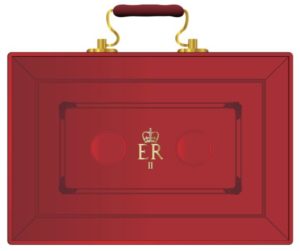The long overdue Budget finally arrived on 11th March, much to the relief of advisers like CCF, because it wasn’t leaving much time before the end of the tax year to get planning in place for the 2020/2021 year which isn’t far off.
The impact of this budget can be summarised very briefly. The Chancellor announced many spending policies which would leave most people worrying about how this was all going to be paid for. The answer is a simple one. It’s predominantly down to the pre-forecast intention to leave the corporation tax rate at 19% instead of reducing it to 17%. As all companies are already paying that rate of tax, we aren’t going to feel much difference. That said, there are a few nuggets to get our teeth into!
Director’s Salaries
The personal tax-free allowance has remained the same at £12,500 and the basic rate and higher rate tax thresholds are also unchanged. This means that individuals can earn up to £50,000 per year before paying higher rate taxes of 32.5% or 40%.
There are changes however to the National Insurance thresholds.
There are two thresholds that we are mostly interested in here:
- The primary threshold, which is the level where employees start paying National Insurance, increased to £9,500 (or £792 per month).
- The secondary threshold, which is the level where employers start paying 13.8% National Insurance on top of the employee’s salaries, increased to £8,788 (or £732 per month).
In the previous tax years, these two thresholds have been the same at £719, which is what many directors were advised to pay themselves as salary.
For 2020/21 directors have a choice: to go for £792 per month salary and pay some NI or £732 and pay no NI. The thing that will make the difference will be the availability of employer’s allowance.
Employer’s Allowance
This is an allowance available to small employers, with an Employer’s National Insurance bill of less than £100,000 per year. In the last tax year this allowance was £3,000 and for 2020/21 this has been increased to £4,000. That is, they are exempt from paying the first £4,000 of Employer’s NI.
Where there is only one director on the payroll, this allowance is not available.
Where there are other employees on the payroll, directors (or their advisers) will therefore decide what level to set the directors salary at, because if they do not use the full allowance in a year for their employees, then they will use the balance for their own purposes.
Minimum Wage
From April 2020 the minimum wage will increase for 25+ year olds to £8.72 per hour. This is a jump from £8.21 in 2019/20.
The full details of the rates for all ages are:
Apprentice rate: £4.15
16 – 17 rate: £4.55
18-20 rate: £6.45
21-24 rate: £8.20
25+ rate: £8.72
Statutory sick pay rates increase to £95.85 per week.
Stamp Duty Reserve Tax
Measures were announced that stamp duty will be charged on transfers of unlisted shares between Connected Companies. These transfers will have to be carried out at market value. There is no further detail yet, but it will follow in the Finance Act.
Pensions & Savings
The lifetime allowance for pensions, the total amount that can be invested, increases to £1,073,100.
The annual allowance taper threshold, the level where higher earners lose their pension tax relief, increases to £200,000. The annual pension allowance remains at £40,000 but this tapers away at the rate of £1 for every £2 over £200,000 (or £240,000 adjusted income which includes any employer’s pension contributions).
The minimum annual tapered allowance falls to £4,000 from £10,000.
The starting rate for savings remains unchanged at 0% tax for the first £5,000.
The annual ISA subscription limit remains at £20,000 but the junior ISA allowance increases to £9,000.
Use of Home
The flat rate of use of home claim increases from £4 per week to £6 per week.
That said, we always recommend consulting your tax adviser as they can calculate a more accurate use of home claim, based on the actual costs of running the home. This can often result in a higher claim than the fixed rate claim.
Company Car Tax
The benefit in kind rate for Electric vehicles registered after 6 April 2020 is reducing to 0% for 2020/21, then will be 1% for 2021/22 and then 2% for 2022/23.
We would always strongly recommend consulting with your tax adviser before making a decision to purchase a car through the company. Rates are always subject to change and could be expected to increase substantially after 2023, when more people will inevitably be driving lower emission vehicles.
Company Vans
There is no benefit in kind tax for electric company vans until April 2021.
Business Rates Relief
From April 2021 there will be 100% rates relief for retailers occupying premises with a rateable value of less than £51,000. Until then, there will be 50% relief on the rates bill.
For pubs with a rateable value of £100K or less, there will be a flat rate £5,000 reduction.
IR35 – Off Payroll Reform
The planned changes to extend the IR35 rules to the public sector are going ahead with no revisions announced in the budget. There was just a note that there are some changes to support a smooth and successful implementation, but no explanation of what this entails.
Capital Allowances
As a reminder, last year the Annual Investment Allowance rate was put up to £1m for capital purchases. This rate lasts until 31 December 2020. There was no mention of any future rates, so it can only be assumed that this will fall back to the previous rate of £200,000.
Businesses planning any significant expenditure in 2020 will need to get their timing right in order to benefit from the enhanced tax relief.
The Structures and Buildings Allowance, which was brought in last year for certain purchases of buildings, will be increased from 2% to 3% from 1 April for companies and 6 April for unincorporated businesses.
R&D
The R&D rate of credit, that is the amount of refund payable, will increase from 12% to 13% from 1 April.
The government is consulting on restricting costs of data and cloud computing. There will also be a PAYE cap being brought in from 2021 to prevent abuse by SMEs.
Capital Gains Tax
The lifetime allowance for entrepreneurs’ relief, the lower rate of tax paid when someone sells their business, has been reduced from £10m to £1m.
Any sales of businesses above £1m will be taxed at the Capital Gains Tax rate of 20% instead of 10%.
The justification for this reduction is because the relief had done little to incentivise entrepreneurial activity.
VAT
Watch this space IFAs, as the government is undertaking a review of financial services and how they are treated for VAT purposes.
We also suspect next year will see the VAT registration thresholds fall. Until then, the registration threshold has remained unchanged at £85,000.
NIC
One thing that was not changed was the abolition of Class 2 NIC, which is the flat rate NIC paid by self-employed individuals. In the absence of any commentary, it would appear that the plans to remove this charge have gone onto the back burner.
If you would like to discuss any area of the budget and how it impacts your business, please do not hesitate to contact CCF Accountancy on 01423 567499 or email enquiries@ccfaccountancy.co.uk
Please always ensure that you consult with a tax adviser before taking any action as a result of the content of this briefing.
Further Reading
From one of the UK’s most read legal blogs.










